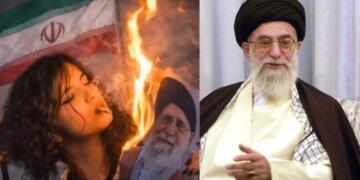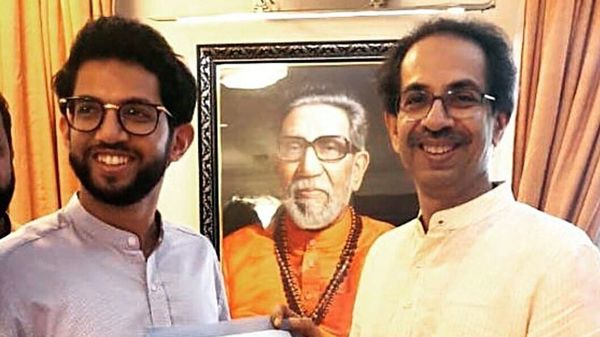The Shiv Sena is set to get a full term chief minister in the state of Maharashtra and it is ready to compromise its core ideology of Hindutva for that purpose. According to reports, the Congress party and the NCP will get to appoint one deputy chief minister each from their ranks. The Sena and the NCP will get 14 ministers each and Congress will get 12 ministers. The Common Minimum Programme of the coalition between the three parties does not even mention Hindutva related issues. And if a Jansatta report is to be believed, the Common Minimum Programme actually dilutes Shiv Sena’s Hindutva agenda.
Shiv Sena is all set to lose its ideological essence and get reduced into a regional satrap dominated by the NCP and the Congress even as the Uddhav Thackeray-led party has signed a Common Minimum Programme (CMP). In this CMP it has agreed on some highly controversial points compromising fully with its foundational ideological goals and values.
Jansatta has reported that according to sources the NCP and the Congress have succeeded in getting Sena to agree on 5 per cent reservation for Muslims. This controversial reservation policy was implemented during the Congress-NCP era. However, it was discontinued later on after a change of government in Maharashtra. Now, if Shiv Sena agrees on this issue with the NCP and the Congress, then it would end up revitalising it all over again.
As per the Jansatta report Sena can also give up on the demand to confer the highest civilian honour of the country, Bharat Ratna upon Veer Savarkar, the man credited with popularising the Hindutva movement. Therefore, the Shiv Sena has formally lost the Hindutva ideology that once formed the core of ideology.
Till now, the questions of 5 per cent reservation for Muslims and demand of a Bharat Ratna for Savarkar were earlier seen as the two contentious issues. However, the Shiv Sena has now given a free run to its ideological rivals, and has yielded a lot of space to the NCP and the Congress to express their political will and ideology.
Other reports have also highlighted about Congress’ and NCP’s demand of “equal treatment” of Maharashtra’s migrant population, Dalits, advisasis as part of the common minimum programme. Shiv Sena has always had a never compromising attitude towards its Hindutva ideology and its Maratha pride.
It is important to mention here that the Shiv Sena’s alliance with the BJP had fallen out on account of its demand for a 50:50 CM formula, that was not acceptable to the BJP. Out of its megalomania, Shiv Sena decided to align with its ideological rivals- the NCP and the Congress. By somehow managing to come into power by stitching an unholy alliance, the Shiv Sena is trying to defeat the electoral mandate that was clearly in favour of a BJP-Shiv Sena coalition government. However, this is actually Shiv Sena’s Waterloo moment. Political power is only a means to achieve its ideological goals for a political outfit. However, by comprising on its ideological goals and values, the party has made political power an end in itself.
It is bizarre how the Shiv Sena is compromising on such critical issues. The party has clearly moved away with the strong ideological background that its founder, Balasaheb Thackrey had given to the party. Jammu & Kashmir BJP chief, Ravinder Raina, has also hit out at the Uddhav Thackrey led party over its attempt to form government with the NCP and the Congress. He said, “Shiv Sena has insulted the memory of Balasaheb Thackeray who never compromised on the Hindutva ideology and principles. Shiv Sena has betrayed the people of this country.”
Today, Shiv Sena has agreed to the Congress-NCP demand of 5 per cent reservation to the Muslim community. But this is in sharp contrast to how the party founder Bal Thackrey had shaped Sena to staunchly oppose “appeasement policy”. The party used to epitomise the crusade against minority appeasement. However, the Congress-NCP agenda of 5 per cent reservation to Muslims epitomises minority appeasement.
Earlier, the Shiv Sena had stroked a major controversy by approaching Kapil Sibal, the man who had tried to get the Ram Mandir hearing, for its petition against the Maharashtra Governor’s decision to refuse the extra time to the Shiv Sena to form the next government in Maharashtra. This marked the beginning of the end of Shiv Sena’s Hindutva ideology, and the process has quickly concluded with Sena reportedly agreeing on a highly controversial Common Minimum Programme.




























